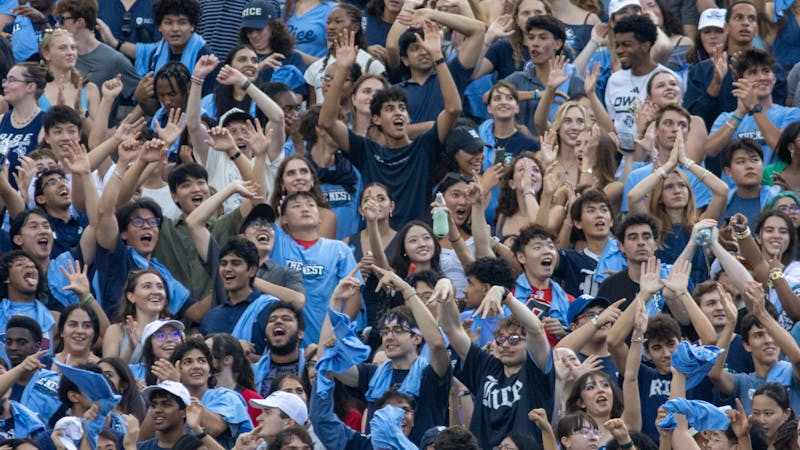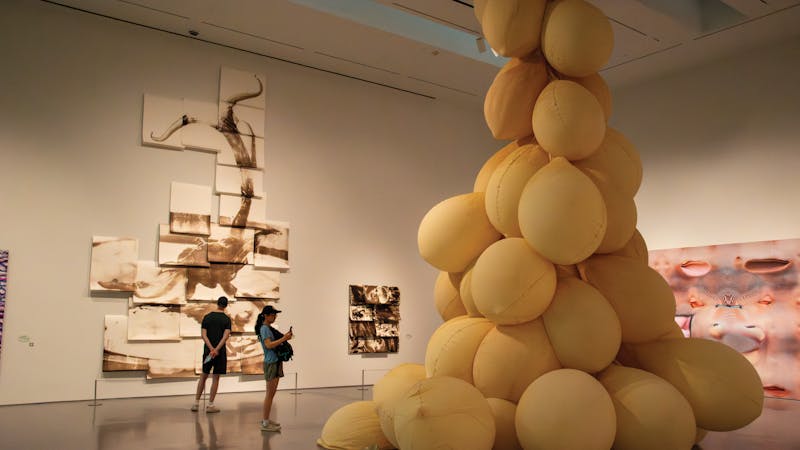KTRU pick of the week: Larkin Gifford's Harmonica
Today's musicians have a staggering array of advanced technologies at their fingertips, ranging from every flavor of synthesizer to Auto-Tune, the pitch correction software now used almost universally in recording studios to make vocals sound closer to perfect pitch. Although the creative opportunities unleashed by computer music are boundless - Girl Talk, anyone? - there is also a growing back-to-basics movement dedicated to making music from even the most banal sounds: everyday speech and all manner of ambient noise, such as whirring machinery and birdsong.Background noise is foregrounded, usually in a blend with more conventional instrumentation, and the result is neither organic nor artificial - but definitely musical. This technique has been applied in genres as diverse as acoustic folk-rock (The Books, who create catchy songs out of obscure spoken samples) and rap (Decomposure, who finds melodies even in the sound of matches striking together). Larkin Gifford's Harmonica, an environmental soundscape from composer Phillip Bimstein, adds classical music to that list.
Bimstein is a classically-trained composer turned politician and environmental activist. After a brief taste of pop stardom with the '80s New Wave band Phil n' The Blanks, he moved to Springfield, Utah, where he served two terms as mayor.
His first solo release in 1996, Garland Hirschi's Cows, garnered the attention of NPR and college radio for its absurd and engaging story of a rural farmer and his herd - complete with copious mooing.
Another project, Cats in the Kitchen, is scored for "flute, oboe, meows, purrs, cracked eggs, buttered toast and sizzling skillets." Though the concepts are gimmicky, the execution is not - usually the sampled sounds, placed in the new context of strings and woodwinds, are nearly unrecognizable as mooing cows or cracking eggs. Instead they sound at times like glitchy electronics or some alien form of percussion.
Larkin Gifford's Harmonica loosens Bimstein's focus from cows or cats to a hodgepodge form of populist storytelling. The first three tracks feature a man talking about casinos and gambling, along with the natural sounds of a casino - chips falling and clacking together, money bills crinkling - and a wind quartet of clarinet, oboe, bassoon and flute. The next third of the album introduces listeners to Larkin Gifford, an elderly man who plays the harmonica, and, in "The Bushy Wushy Rag," a baseball stadium beer vendor who tells his story amidst the clamor of crowd noise.
Finally, two longer compositions without speech are largely crafted from landscape recordings. The best of these, named "4 Half Moon at Checkerboard Mesa" after a spot in Utah's Zion National Park, is positively catchy, even danceable - an amazing feat considering its primary elements are rushing water, yipping coyotes and a noodling oboe.
Bimstein's talent lies not in his choice of sounds, but in his ability to rearrange and meld them into something new. There is nothing inherently interesting in a man talking about casinos, the sound of a chip falling on a table or a few violins messing around. It's only when the three collide that the listener's ears realize something entirely new is going on.
And so the album's best moments are its weirdest ones - when coyotes and oboe fuse into a frenetic mess of noise, or when a scale on Gifford's harmonica is sped up so much that it devolves into shimmering chaos.
Thankfully, Bimstein never takes himself too seriously. Whimsical lines like "Dice were first mentioned in Milton's Paradise Lost" (say it aloud) are delivered with equal doses of whimsy and irreverence.
The zany mix of natural and classical sounds on Larkin Gifford's Harmonica may leave listeners feeling like they've been given a glance into the human subconscious: There's definitely a lot going on, but the meaning of it all is completely impenetrable.

More from The Rice Thresher

Rice loses to UH in Bayou Bucket Classic
The Bayou Bucket will remain with the University of Houston until at least 2030 after Rice football lost to the Cougars Saturday.

Moody Center’s new exhibit blurs the line between body and machine
Swelling latex sculptures, inspired by placentas and umbilical cords have taken up residence in the Moody Center for the Arts. The Barcelona-based artist Eva Fàbregas describes her pieces as forms that grow from “the guts of the architecture,” inflating and wrinkling as if they were alive.

Fizz users and moderators talk fame, challenges
During the volleyball team’s face-off against the University of Texas at Austin on Sept. 3, Jack Vu decided to have a little fun with the scoreboard. An anonymous poster had inaccurately mentioned that Rice beat UT on Fizz, so Vu decided to join in.

Please note All comments are eligible for publication by The Rice Thresher.